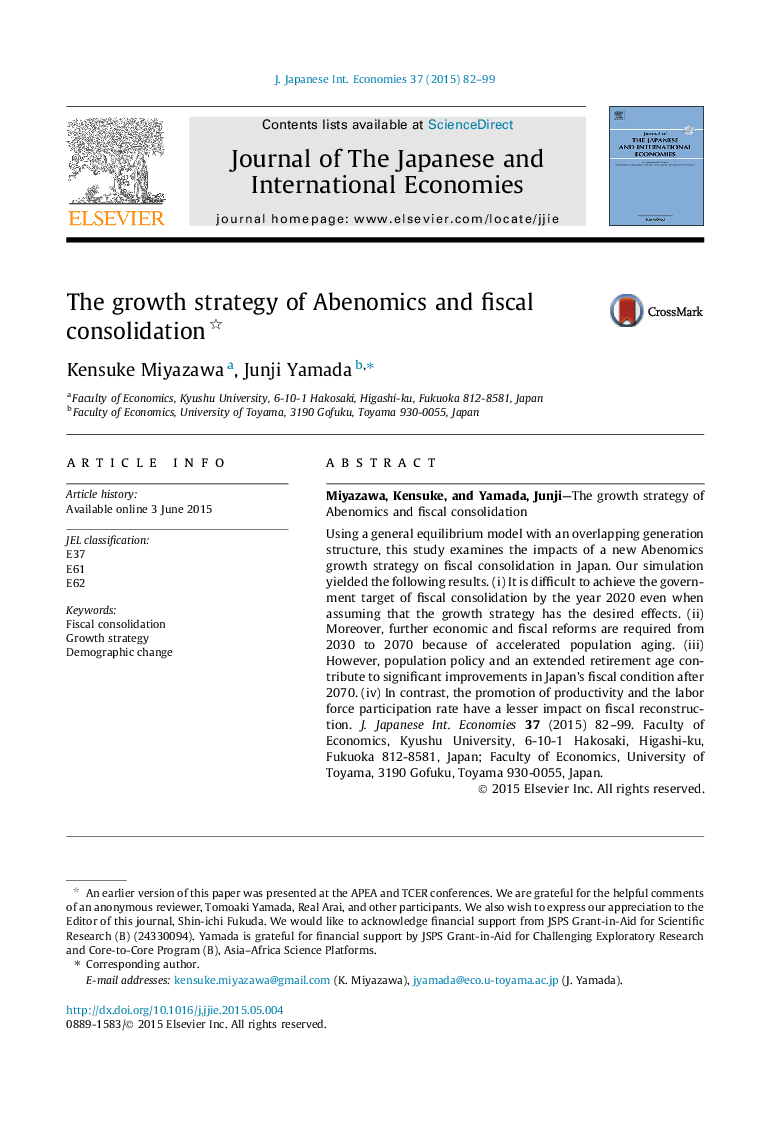| Article ID | Journal | Published Year | Pages | File Type |
|---|---|---|---|---|
| 964467 | Journal of the Japanese and International Economies | 2015 | 18 Pages |
•We examine the impacts of a new Abenomics growth strategy on fiscal consolidation.•The government’s medium-term fiscal consolidation targets are difficult to achieve.•Population policy and retirement extension improve fiscal conditions in the long-run.•Promotion of the labor force participation has a lesser impact on fiscal conditions.•TFP promotion has little impact on fiscal reconstruction.
Using a general equilibrium model with an overlapping generation structure, this study examines the impacts of a new Abenomics growth strategy on fiscal consolidation in Japan. Our simulation yielded the following results. (i) It is difficult to achieve the government target of fiscal consolidation by the year 2020 even when assuming that the growth strategy has the desired effects. (ii) Moreover, further economic and fiscal reforms are required from 2030 to 2070 because of accelerated population aging. (iii) However, population policy and an extended retirement age contribute to significant improvements in Japan’s fiscal condition after 2070. (iv) In contrast, the promotion of productivity and the labor force participation rate have a lesser impact on fiscal reconstruction.
